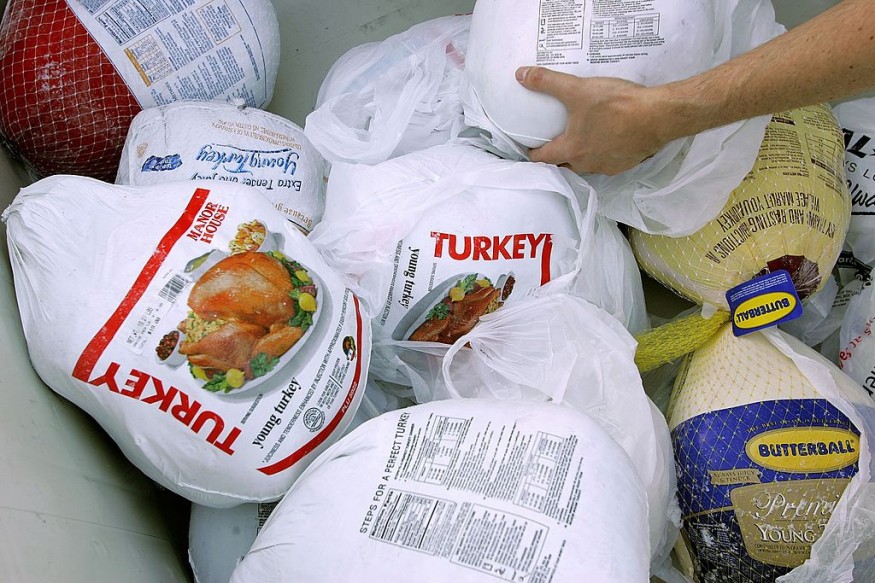The Centers for Disease Control and Prevention (CDC) may approve of your Thanksgiving celebration. Still, they do not want you to clean your turkey.
That's because the US Department of Agriculture found that 60 percent of kitchen sinks were infected with germs after people cleaned their poultry. According to the USDA, One out of every four persons who wash chicken will cross-contaminate other foods being prepared.
"Many consumers think that washing their turkey will remove bacteria and make it safer. However, it's virtually impossible to wash bacteria off the bird. Instead, juices that splash during washing can transfer bacteria onto the surfaces of your kitchen, other foods and utensils," the USDA says via Miami Herald.

CDC Recommends Not Washing Your Turkey This Thanksgiving
This holiday season, the CDC is advising people not to wash their turkeys. But despite the CDC's annual reminder, 78 percent of participants in a 2020 survey indicated they wash or rinse turkey before cooking.
21 days & counting! Thanksgiving will be here before you know it & we’re ready to talk turkey! Unsafe handling & undercooking your holiday bird can cause foodborne illness. With these tips you’ll be sure to keep your Thanksgiving safe & delicious! #FoodSafety pic.twitter.com/PM4uqGktch
— USDA Food Safety & Inspection Service (@USDAFoodSafety) November 4, 2021
"Old recipes and family cooking traditions may keep this practice going, but it can make you and your family sick. Poultry juices can spread in the kitchen and contaminate other foods, utensils, and countertops," said the CDC.
ALSO READ : Scientists Found Nearly 42,000 Toxic 'Forever' Chemicals That Could Contaminate Drinking Water
Since raw turkey may infect whatever it comes into contact with, the USDA recommends scrubbing your hands clean with soap and warm water for 20 seconds after handling it. While it has been advised against washing turkey since 2005 for food safety reasons, experts say it is an old tradition that might be difficult to give up.
How to Avoid Food Contamination
Experts recommend not placing your frozen turkey on the counter to defrost. According to the CDC (per WebMD), the turkey's temperature left at room temperature for more than two hours becomes unhealthy, and it may reach "the danger zone" between 40 and 140 degrees Fahrenheit.
Instead, defrost the turkey in a refrigerator container; in a leak-proof plastic bag in a sink of cold water (changing the water every half hour); or in a microwave, if you have one large enough to hold a turkey.
If you decide to wash your turkey despite the CDC and USDA's instructions, ensure your sink is well cleaned afterward. With hot water and soap, scrub the sink, as well as all cutting boards and surfaces. After that, use a cleaning solution to sterilize them. According to the USDA, one gallon of water and one tablespoon of unscented liquid chlorine bleach can be used to produce one.
To keep you and your loved ones safe, the CDC suggests following the four primary food safety rules: clean (your hands and surfaces), separate raw and cooked foods, prepare correctly, and chill (refrigerate promptly).
Check out more news and information on Medicine and Health in Science Times.
© 2026 ScienceTimes.com All rights reserved. Do not reproduce without permission. The window to the world of Science Times.









